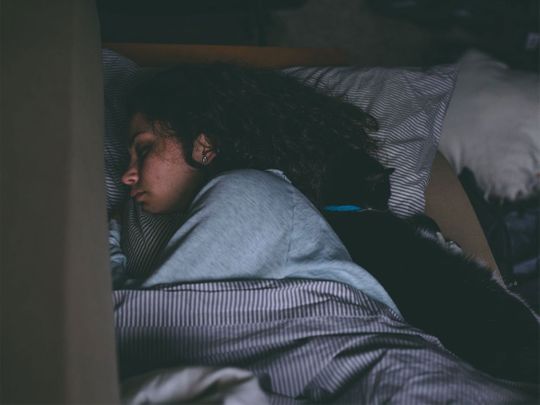
Patna, Bihar: A new study has found that the people living in urban areas of Bihar are sleeping more during the COVID-19 pandemic due to limited work, closure of schools and introduction of work from home culture. Although some educational institutions have re-opened, they are functioning with only 50 per cent strength.
The study was conducted by the students of the Patna University, a premier university in Bihar, about a fortnight back to know the sleeping patterns in the society post-COVID-19 outbreak. The study involved 5,000 families from 10 districts of the state — Patna, Gaya, Muzaffarpur, Bhagalpur, Purnia, East Champaran, Darbhanga, Nalanda, Rohtas and Katihar.
The study found that closure of schools for children, work from home culture, availability of more family members at home and growing health consciousnessare driving people to to sleep more.
“Most of the respondents said they are waking up late now since they don’t have the urgency to cook lunches for children during morning hours or drop them to schools due to closure of schools,” survey coordinator Abhishek Anand said.
“Especially, the female community is feeling more relaxed since they don’t have to work in two shifts. Previously, they had to cook lunches for children and shortly after that they had to keep food ready for their working husbands,” he said. The reason is simple — first the children have shifted to online classes while a good per cent of men are working from home.
According to the survey, the residents are now sleeping for at least 7-9 hours against 6-7 sleep during the pre-COVID-19 time. The survey said the children too are sleeping more as the parents have stopped scolding them during the COVID-19 time and taking more care of them.
Watching less of TV
Yet another interesting story that surfaced during the survey was that the residents were watching less TV and going to the bed early. The change in their habits came after being advised by the doctors to spend less time on mobile phones and watching TV at night and instead go to bed early for sound sleep to remain fit. The advice came after many people complained of sleeplessness during COVID-19 period.
“It’s better to get good sleep than gulping sleeping pills,” the respondents told the survey teams.
The study, however, said there was no change in sleeping patterns in the countryside. However, one thing that emerged during the survey was that the villagers have now stopped visiting towns more frequently. Now they travel to the cities when it is very urgent.
Health experts cite different reasons for the increase in night-time sleep and one of the reasons they describe is the weakness among the people who have recovered from COVID-19 infections.
“Almost 71 per cent patients admitted to the intensive care unit (ICU) and 62 per cent recuperating in the Covid wards have complained of weakness and laziness. These have resulted in long sleeping hours among them,” said Dr Sanjeev Kumar, nodal officer for COVID-19 at the All India Institute of Medical Sciences (AIIMS)-Patna.
Dr Kumar suggested the persons who recovered from COVID-19 to sleep well. “Adequate sleep is beneficial for their health while those not getting good sleep must consult the doctors,” he said.








